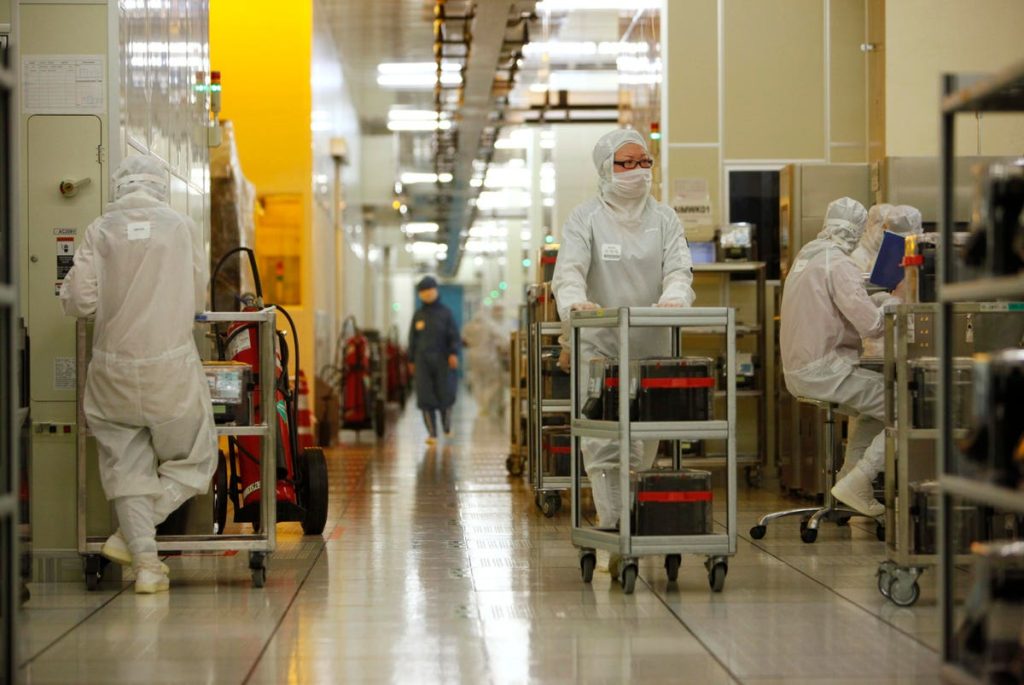China seems to have won a round in its technological war with the United States. The Shanghai-based Semiconductor International Manufacturing Corporation (SMIC) seems now to have domestic access to advanced chips that could render moot the American bans on the sale of advanced chops and chip-making equipment. The history of technology and innovation teaches that it was only ever a matter of time before China found a work around to the American-inspired bans, but that event seems to have occurred more quickly and with more drama than was expected when the U.S. restrictions went into place last year. Now it is for Washington to make the next move in this contest.
The Biden effort to thwart Chinese technological ambitions built on the 2022 CHIPS and Science Act. It allotted subsidies to chip manufacturers to build operations in the United States and at the same instituted the bans on the sale of advanced semiconductors and chip making technologies to China. Its biggest success arrived soon after the legislation passed when the White House convinced Japan and the Netherlands to comply with its provisions. Especially significant was the agreement by the Netherlands-based ASML Holding company to stop sales to China of it most advanced extreme ultraviolet lithography machines for the manufacture of semiconductors. At the time of the agreement, ASML’s leadership insisted that the ban would only encourage the Chinese to develop like equipment for themselves, and that it was only a matter of time before that day would arrive.
Now, even sooner than ASML’s management expected, China seems to have done just that. According to the Beijing-based publications Securities Daily, the Shanghai-based Micro Electronics Equipment Group has developed a lithography machine capable of producing transistors comparable to those produced by ASML equipment and needed for advanced smart phones, computers, and cutting-edge weapons. The issue was always a matter of size. The smaller the transistors a machine can make the more it can fit on a chip. It was thought that China could not make transistors smaller than 7nm, the scale used to measure their size. Now it seems this research effort has broken that barrier and is now verging on even smaller transistors of 5nm.
Two unanswered questions now remain. First is how the new Chinese machine compares to existing equipment in the United States, Japan, and the Netherlands. The second question is how fast the Chinese can leverage this breakthrough to accelerate the development of advanced chips. If the answers to these two questions include a lot of caveats and delays, then China’s breakthrough will wait until it can make a difference in the Sino-American chip wars. If the answers are less troubled, then China will have clearly won this round, and the competition with the United States will move on to other matters.
If much remains unresolved, China’s quick response to Washington’s bans offers at least one important lesson to economic and diplomatic strategists. Any bans, such as Washington arranged in 2022, seldom can have any lasting effect, especially when, as in the case of the CHIPS and Science Act, they aim to stop the spread of technology. ASML’s management now looks strikingly prescient with its warning about what China would do. In a broader context, there is also second lesson. It concerns the kind of industrial policy behind the CHIPS and Science Act, and Bidenomics generally for that matter. Because it is impossible to see the future, any sweeping gesture — by government or a company – will often miss the mark.
Washington’s bans on sales of chips and chip-making equipment to China serves as a perfect illustration. The specifics in the law necessarily settled on circumstances as they existed at the time, who possessed which technologies and what technologies were ascendent. But in economics, especially where technologies are concerned, things are always developing. In this instance, China seems to have caught up with the west making the bans moot. The American objectives could as easily have been disrupted if a different sort of breakthrough had rendered all the existing chips and equipment obsolete, as in the 1980s, when Japan’s effort to dominate chip manufacturing came to nothing when Intel brought out the microprocessor. Rather than try to control access to what exists, Washington would have done better to unencumber firms to develop the next generation of technology.
Read the full article here









